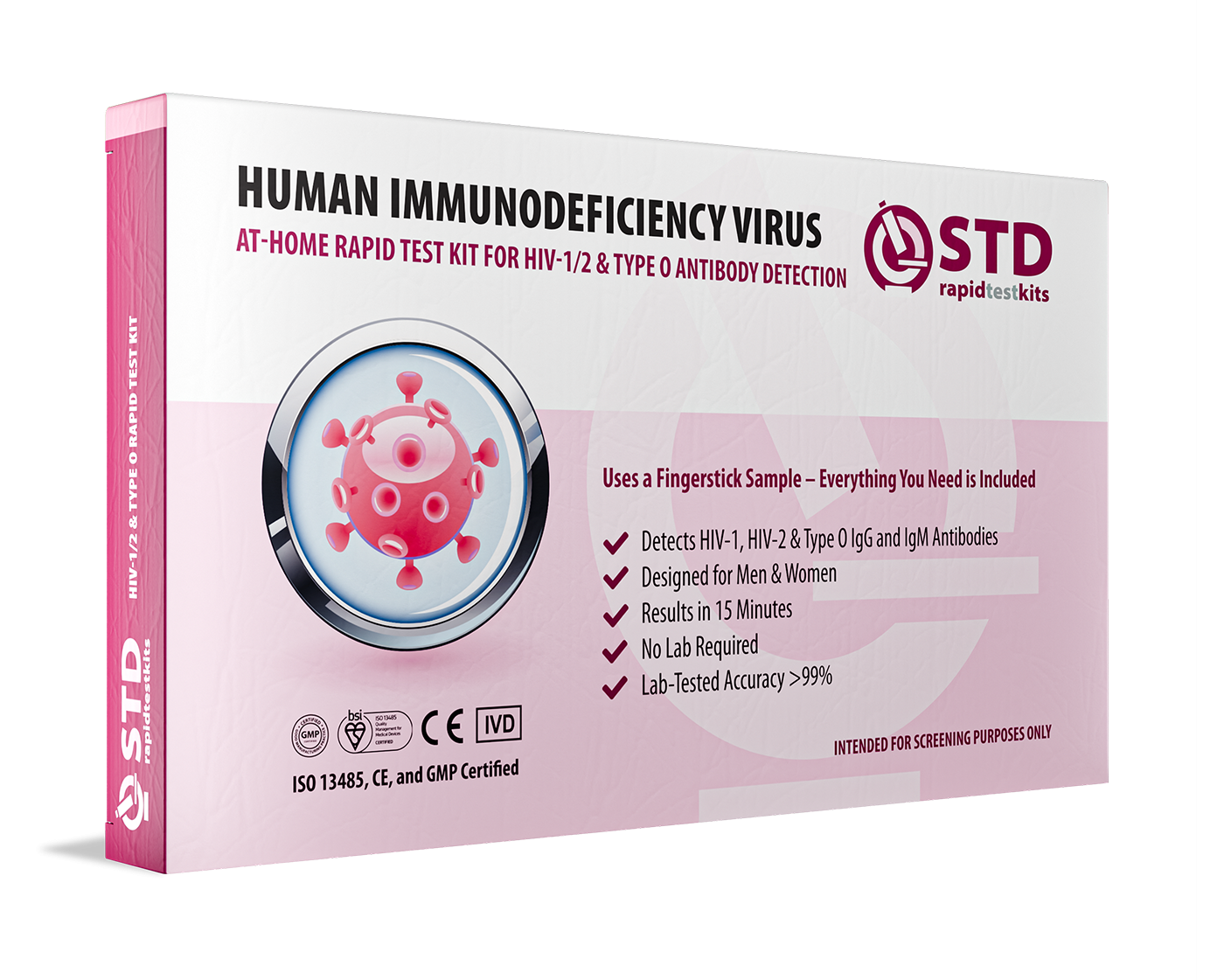From Days to Minutes, Why Speedy STD Testing Matters
The STD Surge in LGBTQ Youth: A Crisis Hiding in Plain Sight
It’s a chilling fact: LGBTQ youth, particularly young gay and bisexual men, transgender individuals, and queer youth of color, are facing an explosive rise in STDs. Syphilis, gonorrhea, chlamydia, and HIV are not just lingering issues; they’re roaring back with a vengeance.
According to the CDC, gay and bisexual men account for almost half of all new syphilis cases. Young transgender women, especially Black and Latina trans women, show astonishingly high rates of HIV and other STIs. Yet, the general conversation around sexual health often leaves these realities in the shadows.
Why? Because acknowledging it would mean acknowledging that we, as a society, are failing them. We’re failing them through underfunded clinics, through lack of inclusive sex education, and most tragically, through the crushing burden of stigma.
When you grow up being told your sexuality or gender identity is wrong, unsafe, or shameful, it’s no wonder so many young people internalize the belief that asking for help, or even just caring for their own health, is somehow dirty too.
The Devastating Cost of STD Stigma
STD stigma doesn’t just hurt feelings. It kills. And it does so in terrifying ways:
- Delayed Testing and Treatment: The fear of being judged or outed stops many LGBTQ youth from getting tested early. This leads to late-stage infections that are harder to treat and more likely to spread.
- Increased Transmission: Without testing and treatment, infected individuals unknowingly pass infections to others, creating cycles of pain and shame that are hard to break.
- Mental Health Crises: The constant stress of hiding, coupled with fear of judgment, fuels depression, anxiety, and suicidal ideation, already disproportionately high among LGBTQ youth.
- Disrupted Futures: Chronic untreated STDs can lead to infertility, organ damage, neurological issues, and lifelong health complications. Imagine a teenager’s future being forever altered because no one made it safe for them to ask for help.
No one deserves to suffer in silence. No one deserves to feel expendable because of who they are.

Why Traditional Healthcare Is Failing LGBTQ Youth
You’d think that in 2025, doctors’ offices would be safe havens for all. Think again. A shocking number of LGBTQ individuals report experiencing discrimination in healthcare settings. Some are mocked. Others are denied care altogether. Many are asked invasive, irrelevant questions about their sexuality rather than being offered straightforward health advice.
When healthcare feels like another battlefield, it’s no wonder young LGBTQ people avoid it altogether. Here’s where at-home STD testing kits, like those from STD Rapid Test Kits, come in as literal lifesavers. They offer privacy, dignity, and autonomy, allowing individuals to take control of their health without the risk of judgmental stares or humiliating conversations.
The Power of At-Home Testing: A Game Changer
At-home STD testing isn’t just a convenience; it’s a revolution in public health. These tests allow people to discreetly check for infections like HIV, syphilis, gonorrhea, chlamydia, and hepatitis, all from the privacy of their homes.
Companies like STD Rapid Test Kits provide FDA-approved, confidential options that can detect infections quickly and accurately. The process is simple: order online, follow easy instructions, and receive results in a fraction of the time it would take at a clinic. The impact? Testing rates soar. Fear shrinks. Lives are saved.
Check Your STD Status in Minutes
Test at Home with Remedium7-in-1 STD Test Kit

 For Men & Women
For Men & Women Results in Minutes
Results in Minutes No Lab Needed
No Lab Needed Private & Discreet
Private & DiscreetOrder Now $129.00 $343.00
For all 7 tests
The Data Doesn't Lie: LGBTQ STD Statistics You Can’t Ignore
When you strip away the fear and denial, the cold, hard numbers remain. According to the CDC’s 2024 surveillance report, gay, bisexual, and other men who have sex with men (MSM) account for more than 40% of primary and secondary syphilis cases in the United States. Meanwhile, transgender women are three times more likely to contract HIV compared to the general population.
Even more distressing is that nearly half of all new STD cases occur in people aged 15–24. Think about that: kids barely out of high school, carrying lifelong infections because stigma made it impossible for them to access preventive care.
In a study published in JMIR Public Health and Surveillance, it was found that only 30% of LGBTQ youth received consistent sexual health screenings, compared to over 60% of their heterosexual counterparts. That’s a healthcare crisis hiding in plain sight. When basic testing and education are denied or ignored, infection rates spike. It's not rocket science, it's a failure of compassion.
Expert Opinions: How Doctors and Advocates See the Crisis
Leading voices in sexual health aren’t mincing words about the situation. Dr. Eli Rosenberg, an epidemiologist at Emory University, states:
“The explosion of STDs among LGBTQ youth is not inevitable. It is preventable. What’s killing these young people is not their sexuality, it’s our collective apathy.”
Meanwhile, advocacy organizations like the Trevor Project emphasize that inclusive, affirming healthcare and education are critical to reversing these trends. In their 2024 National Survey on LGBTQ Youth Mental Health, they reported that affirming medical care reduces suicide attempts by 40%.
Experts overwhelmingly agree: when LGBTQ youth feel safe, seen, and supported, their health outcomes improve dramatically. Testing rates go up. Infection rates go down. Hope returns.

A Brief History: LGBTQ Health Battles We've Already Fought
This isn’t the first time stigma has been weaponized against LGBTQ bodies.
In the 1980s, the HIV/AIDS crisis decimated an entire generation because society refused to act until it was too late. The government ignored early warnings, religious leaders called it "God’s punishment," and families abandoned their own children. Only when the epidemic spilled over into the general population did the broader public start caring.
Today, we see echoes of that same dangerous negligence. Rising syphilis and gonorrhea rates among LGBTQ youth are dismissed as "their problem." Public funding for STD prevention remains criminally low, even as infection rates skyrocket.
If history teaches us anything, it’s this: silence kills. And only collective action saves lives.
The Future of LGBTQ Sexual Health: What’s Coming Next
If current trends continue, antibiotic-resistant gonorrhea, also known as "super gonorrhea", could become a common threat. The WHO warns that multi-drug-resistant STDs are already here, and without aggressive intervention, they will worsen.
But the future isn't hopeless. Innovations in at-home testing, telehealth sexual education, and targeted outreach campaigns are reshaping the landscape. LGBTQ-focused clinics, mobile health units, and online support networks are making it easier for young people to get tested without fear.
Advocates are also pushing for comprehensive, LGBTQ-inclusive sex education in schools, a critical shift that could change the trajectory of STD rates dramatically.
If we act boldly now, we can create a future where stigma no longer gets to write the ending.

How You Can Take Action Today
You don’t have to be a doctor or a politician to make a difference. Here’s how you can protect yourself and your community:
- Test regularly: Know your status. At-home options like STD Rapid Test Kits make it fast, private, and stress-free.
- Talk openly about sexual health: Normalize these conversations among friends, partners, and family.
- Support inclusive healthcare providers: Choose doctors and clinics that affirm and respect LGBTQ identities.
- Challenge stigma when you see it: Whether it’s an offhand comment or systemic discrimination, speak up.
- Educate yourself and others: Knowledge is power. Share resources, articles, and guides.
Taking action isn’t just brave, it’s lifesaving.
Industry Impact: Healthcare's Reckoning with LGBTQ Sexual Health
The healthcare industry can no longer afford to treat LGBTQ sexual health as a niche issue.
Pharmaceutical companies are investing heavily in PrEP (pre-exposure prophylaxis) accessibility. Telemedicine startups are focusing on discreet STD treatment. Even insurance companies are beginning to understand the economic cost of neglecting LGBTQ health.
Clinics that ignore cultural competence are losing patients, while those that provide inclusive, affirming care are growing exponentially. This isn’t just good medicine; it’s good business.
As LGBTQ youth demand healthcare that respects and protects them, the entire medical industry is being forced to evolve, or be left behind.
Check Your STD Status in Minutes
Test at Home with RemediumHIV Rapid Test Kit

 For Men & Women
For Men & Women Results in Minutes
Results in Minutes No Lab Needed
No Lab Needed Private & Discreet
Private & DiscreetOrder Now $33.99 $49.00
Personal Story: "I Was Too Scared to Get Tested, and It Almost Killed Me"
Riley (not their real name) was 19 when they noticed something was wrong. They had painful sores but were too scared to tell anyone.
"I thought if I went to the clinic, they'd shame me," Riley says. "Or worse, my parents would find out I was queer."
By the time Riley sought help, the infection had spread to their bloodstream, a rare but life-threatening complication of untreated syphilis. Hospitalized for weeks, they fought to recover both physically and emotionally.
Today, Riley is a fierce advocate for at-home STD testing.
"If I had known about at-home kits likeSTD Rapid Test Kits, I could have caught it so much sooner," they say. "Testing isn’t shameful. It’s self-love."
Busting the Myths: Common Misconceptions About LGBTQ and STDs
Myth 1: Only gay men get HIV.
Reality: HIV affects all orientations and genders. Assumptions kill.
Myth 2: You can tell if someone has an STD by looking.
Reality: Many STDs are asymptomatic. The only way to know is to test.
Myth 3: If you’re on PrEP, you don’t need STD tests.
Reality: PrEP protects against HIV, not other STDs like syphilis or gonorrhea.
Myth 4: At-home tests aren’t reliable.
Reality: When used correctly, reputable at-home tests are highly accurate.
Myth 5: Talking about STDs encourages risky behavior.
Reality: The opposite is true, open communication reduces risk.
FAQs
1. "Is it true that LGBTQ people are more likely to get STDs?"
Yes, but not because of who they are. It’s because of systemic discrimination, lack of inclusive healthcare, and social stigma that drives risky behavior and delays in testing.
2. "How often should LGBTQ youth get tested for STDs?"
At least once a year, or more often if sexually active with multiple partners. Many experts recommend testing every 3-6 months for high-risk groups.
3. "Will a doctor judge me if I ask for an STD test?"
Some might (which is awful), but many won’t. You deserve respectful, compassionate care. If that’s not an option, at-home kits offer a safe alternative.
4. "Can I really trust at-home STD test kits?"
Absolutely. Companies like STD Rapid Test Kits use advanced technology and strict quality control to ensure reliability.
5. "What if my family finds out I ordered a test kit?"
Discreet shipping is standard practice. Most kits arrive in plain packaging to protect your privacy.
6. "What happens if I test positive at home?"
You’ll get clear instructions on the next steps, including finding treatment. Testing positive isn’t a death sentence, it’s a second chance to heal and prevent further spread.
7. "Why are syphilis and gonorrhea getting worse instead of better?"
Partially because of antibiotic resistance, partially because public health funding cuts have gutted prevention programs.
8. "Is hookup culture to blame for rising STD rates?"
Not entirely. Apps facilitate connections, but the real culprit is stigma preventing honest conversations about sexual health and testing.
9. "Are there specific STDs LGBTQ youth should be most worried about?"
Syphilis, gonorrhea, HIV, and chlamydia top the list, but HPV and hepatitis are also serious concerns.
10. "Can I get an STD even if I’m using protection?"
Yes, although protection (like condoms and dental dams) dramatically reduces risk. Some infections, like herpes and HPV, can still spread through skin-to-skin contact.
No Excuses Left: Protect Yourself and Your Community
You don’t have to be another statistic. You don't have to live in fear, shame, or silence. And you don't have to wait for someone else to save you. Protecting your sexual health is revolutionary. It’s an act of self-respect, love for your community, and defiance against a system that would rather see you suffer quietly.
Start today. Talk about it. Get tested. Support others. The next life you save could be your own, or someone you love. Take the first step toward protecting your future today. Get discreet, reliable STD testing with STD Rapid Test Kits. Your health, your dignity, your power.
Sources
1. The STD Lab Closure and Syphilis Surge , The Guardian
2. Why STD Rates Are the Highest Ever , Time Magazine
3. Breaking STI Stigma for LGBTQ Youth , Allure










